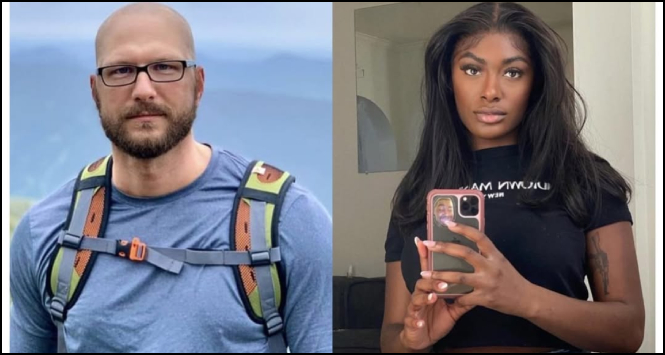More than three years have passed since 23-year-old Lauren Smith-Fields was found dead in her apartment under deeply suspicious circumstances, yet her family is still demanding answers — and justice.
Despite national attention and public outrage, no one has been held accountable for Smith-Fields’ death on December 12, 2021.
Smith-Fields, a college student and Stamford High School graduate, was found unresponsive in her Bridgeport home just hours after a date with a man she had met on the dating app Bumble.
That man, 37-year-old Matthew LaFountain, was the last person to see her alive. He called 911 that morning to report her unconscious, and according to the police report, blood was seen coming from one of her nostrils.

But the troubling details didn’t end there.
Police didn’t even notify her family — they learned of her death from a note left on her apartment door by the landlord. For weeks, the cause of death remained “pending further studies.” It was later determined to be “acute intoxication” due to a lethal combination of fentanyl, promethazine, hydroxyzine, and alcohol. The manner of death was ruled an accident.
Still, the family — and many in the public — have refused to accept that explanation without accountability.
A Mishandled Investigation?
Attorney Darnell Crosland, representing the Smith-Fields family, has repeatedly criticized the Bridgeport Police Department’s handling of the investigation.
According to Crosland, police failed to secure the scene properly, neglected to collect key pieces of evidence — including a used condom, a sedative pill, alcohol bottles, and blood-stained bedsheets — and dismissed LaFountain as a suspect far too early.
“He should’ve been treated as a person of interest from day one,” Crosland said at the time. “This young woman deserved a thorough investigation, not indifference.”

LaFountain, who has since changed his name on social media and remained largely out of the public eye, was never arrested or named a suspect. He issued a public statement through his attorney offering condolences and claiming full cooperation with investigators — a gesture the family has called hollow and evasive.
“There’s no way she knowingly took a cocktail of fentanyl, promethazine, hydroxyzine, and alcohol,” Crosland argued. “That would be like drinking bleach.”
The family has also expressed concern about racial bias in how the case was treated. In one instance, a police investigator allegedly referred to LaFountain as “a nice guy,” prompting further criticism that a white male suspect was given the benefit of the doubt while a Black female victim was overlooked.
Legal Action and Ongoing Demands
In January 2022, Bridgeport police belatedly launched a criminal investigation in collaboration with the U.S. Drug Enforcement Administration. But the delay may have already compromised the case. Valuable forensic evidence was likely lost due to the time lapse between her death and the launch of a proper investigation.
On what would have been Lauren’s 24th birthday, her family filed a notice of intent to sue the city, mayor, police chief, and others, alleging civil rights violations and failure to properly investigate her death.
Today, that lawsuit remains unresolved. And despite their persistence, the Smith-Fields family is still waiting for justice.
Why Her Story Still Matters
Lauren Smith-Fields’ story continues to resonate in 2025 as a painful example of systemic neglect — the kind that disproportionately affects Black women in America.
Activists and community leaders continue to raise awareness about her case under the hashtag #JusticeForLauren, using it as a rallying cry for police reform, accountability, and better treatment of missing and deceased Black women.
Her death also serves as a stark reminder for young women to prioritize safety while dating. Advocates encourage users of dating apps to share their location with friends, trust their instincts, and let loved ones know where they are at all times.
As long as no one is held accountable, Lauren Smith-Fields’ name remains a haunting symbol of a justice system that too often fails Black victims.
